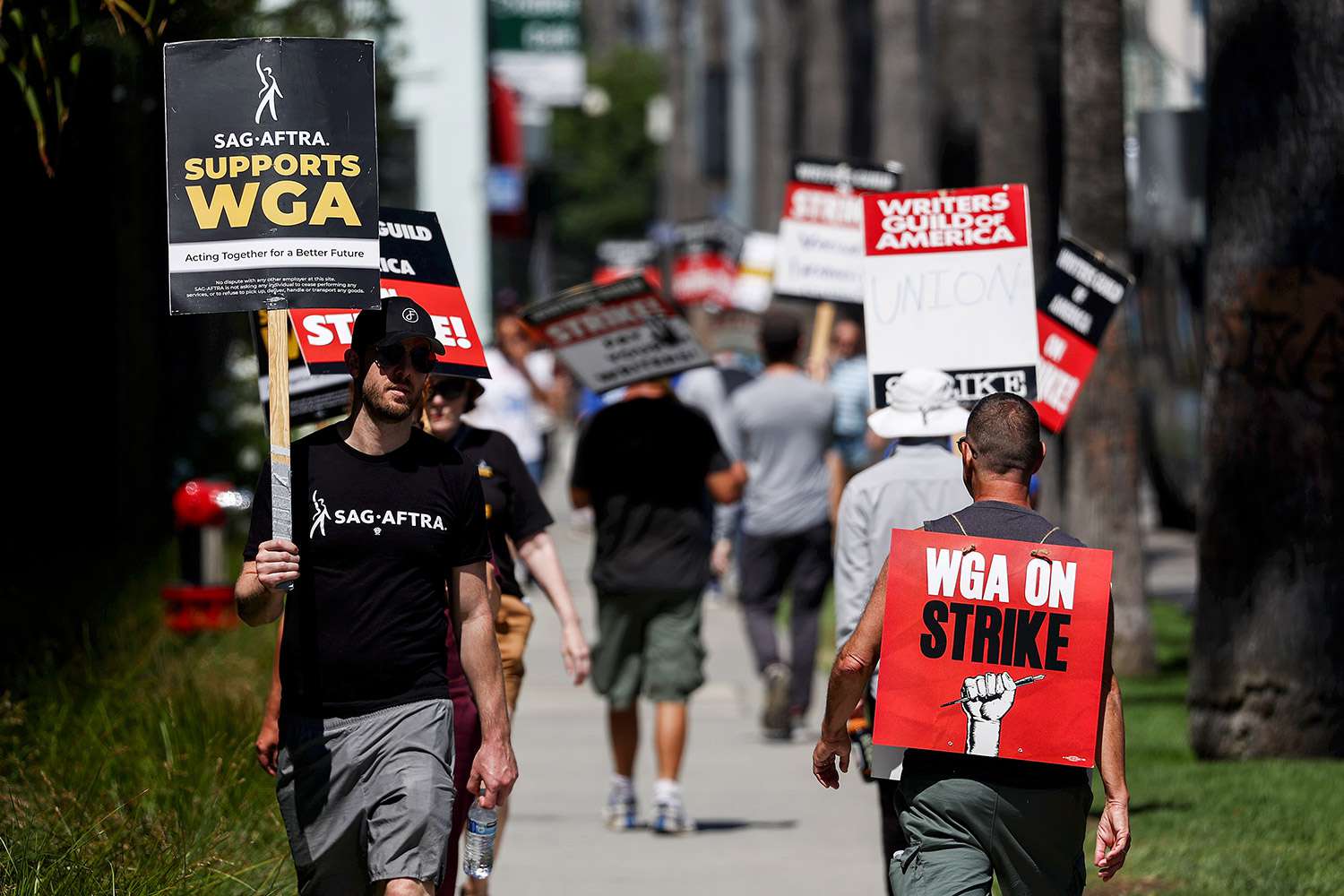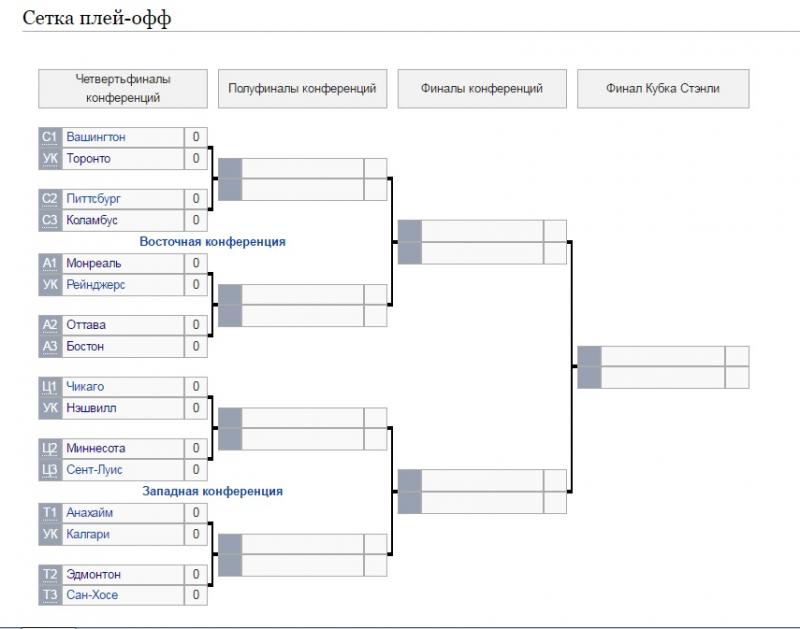WGA And SAG-AFTRA Strike: Unprecedented Hollywood Production Shutdown

Table of Contents
The Core Issues Fueling the WGA and SAG-AFTRA Strikes
The strikes aren't simply about money; they represent a broader fight for fair treatment and the future of creative work in the entertainment industry. Several core issues fuel this unprecedented action.
Fair Wages and Residuals in the Streaming Era
The shift from traditional television models to streaming has dramatically altered the compensation landscape for writers and actors. Traditional television relied on a system of residuals—payments made to writers and actors each time their work aired in reruns or syndication. Streaming services, however, often utilize opaque viewership data and offer significantly reduced residuals, if any at all. This change has drastically cut into the income of many creatives.
- Examples of decreased residual payments: A writer who previously earned substantial residuals from syndicated reruns of a sitcom now receives a fraction of that amount, if anything, from a streaming platform, despite potentially millions of viewers streaming the show. Similarly, actors who once benefited from syndication deals now see significantly smaller payments for their work on streaming shows.
- Examples of how streaming services pay less than traditional television for the same work: Many streaming deals offer flat fees with no backend participation, unlike traditional television contracts that often include a share of profits or royalties. This disparity significantly impacts the long-term financial security of writers and actors.
The Threat of AI in the Entertainment Industry
The increasing use of AI in entertainment is another significant point of contention. Both the WGA and SAG-AFTRA express concerns about the potential for AI to replace human creativity and diminish the value of their work. AI tools can generate scripts, create digital duplicates of actors, and potentially automate various aspects of filmmaking, leading to job displacement and decreased demand for human talent.
- Examples of AI tools already impacting the industry: AI-powered scriptwriting tools are already available, raising concerns about their potential to replace human writers. Similarly, AI-generated deepfakes pose a threat to actors' likenesses and potential employment.
- Potential scenarios for AI misuse and worker displacement: The fear is not just about automation of some tasks, but the complete replacement of human writers and actors with AI-generated content. This could drastically reduce the need for human creatives.
- The WGA and SAG-AFTRA's demands regarding AI usage: Both unions are pushing for regulations and safeguards to prevent the unethical and exploitative use of AI in the entertainment industry, including fair compensation for AI-generated work based on their original creative contributions.
Working Conditions and Exploitation
Beyond pay and AI, the strikes also address long-standing issues of exploitation and poor working conditions within the industry. This includes excessively long working hours, inadequate safety protocols, and a power imbalance that often favors studios over creative professionals.
- Specific examples of exploitative practices: This includes "turnaround" situations where writers are expected to rapidly complete projects without sufficient time, leading to burnout and compromised quality. Actors often face demanding schedules and long hours with little compensation.
- Data on average working hours and wages: While precise data varies, the unions cite consistently long working hours and insufficient compensation for the demanding nature of their work, particularly for those starting out in the industry.
- The unions' proposals to improve working conditions: The strikes are pushing for improved working conditions, including reasonable working hours, adequate safety measures, and better treatment of freelance workers.
The Impact of the Hollywood Strike
The WGA and SAG-AFTRA strikes have had a wide-ranging impact across the entertainment industry and beyond.
Production Halt and Economic Consequences
The strike has brought virtually all major television and film production in Hollywood to a complete standstill. This has resulted in significant economic consequences for production companies, crew members, local businesses, and the wider economy.
- Estimates of financial losses: Billions of dollars in lost revenue are projected, affecting not only studios but also numerous businesses that rely on the entertainment industry.
- Examples of postponed or cancelled projects: Numerous film and television projects have been indefinitely postponed or canceled, causing significant disruption to production schedules.
- The ripple effect on related industries (catering, transportation, etc.): The impact extends beyond the studios and creative teams; catering services, transportation companies, and other related businesses are also experiencing significant financial strain.
The Impact on Streaming Services
The strike's impact on streaming services is profound. Release schedules are disrupted, potentially affecting subscription numbers and viewer engagement.
- Examples of delayed releases: Several highly anticipated shows and films have been delayed due to the strike.
- Potential effects on platform growth and revenue: The lack of new content could negatively impact subscriber growth and overall platform revenue.
Public Support and Awareness
Public support for the striking actors and writers has been significant, with widespread social media campaigns and petitions demonstrating solidarity.
- Examples of public support (social media campaigns, petitions): Social media platforms have been filled with messages of support for the strikers, highlighting the importance of fair wages and working conditions in the entertainment industry.
- Polling data on public opinion: Surveys suggest a high level of public sympathy for the unions' demands.
- The role of media in shaping public perception: The media's coverage of the strike has played a crucial role in shaping public understanding and support.
Potential Resolutions and Future of the Industry
The outcome of the strikes remains uncertain, but several factors could influence the negotiations and their ultimate resolution.
Negotiation Strategies and Potential Outcomes
Both sides are employing various strategies to achieve their goals. The unions are united in their demands, while the studios are attempting to balance the economic realities of the streaming era with the needs of their creative workforce.
- Possible compromises: Negotiations may lead to compromises on issues such as residuals, AI usage, and working conditions.
- Previous strike resolutions as precedents: Past strike resolutions in the entertainment industry could serve as a guide for potential outcomes.
- External pressures influencing the negotiations: Public opinion and economic realities could influence the outcome of the negotiations.
Long-Term Impacts on the Entertainment Industry
This strike has the potential to reshape the relationship between studios and creative professionals. The long-term consequences could include changes to compensation models, working conditions, and the role of AI in the industry.
- Potential changes in compensation models: The industry may see a shift towards fairer compensation models that better reflect the value of creative work in the streaming era.
- Possible adjustments to working conditions: Improved working conditions, such as reduced working hours and better safety protocols, could become more prevalent.
- The long-term impact on the use of AI in the industry: Regulations and safeguards regarding the use of AI in creative work could be implemented to protect the rights of writers and actors.
Conclusion
The WGA and SAG-AFTRA strike is a pivotal moment for the entertainment industry. The core issues of fair wages, residuals, working conditions, and the ethical use of AI are crucial for the long-term health and sustainability of filmmaking and television production. The resolution of this unprecedented Hollywood production shutdown will have far-reaching consequences for creatives, studios, and viewers alike. Understanding the complexities surrounding the WGA and SAG-AFTRA strike is vital for everyone involved in or impacted by the entertainment industry. Staying informed about the strike and its developments is essential to understanding the future of the entertainment industry. Continue to follow the news and advocate for fair treatment of workers in the entertainment industry.

Featured Posts
-
 Ufc 314 Chandler And Pimblett Offer Unfiltered Predictions
May 15, 2025
Ufc 314 Chandler And Pimblett Offer Unfiltered Predictions
May 15, 2025 -
 Padres Aim To Dominate Rockies In Upcoming Series
May 15, 2025
Padres Aim To Dominate Rockies In Upcoming Series
May 15, 2025 -
 Heats Jimmy Butler Suffers Pelvic Contusion Status Unknown
May 15, 2025
Heats Jimmy Butler Suffers Pelvic Contusion Status Unknown
May 15, 2025 -
 Mls Injury News Martinez And White Sidelined For Saturdays Match
May 15, 2025
Mls Injury News Martinez And White Sidelined For Saturdays Match
May 15, 2025 -
 Rays Sweep Padres A Comprehensive Look At The Series Victory
May 15, 2025
Rays Sweep Padres A Comprehensive Look At The Series Victory
May 15, 2025
Latest Posts
-
 12 Golov V Pley Off Ovechkin V Istorii N Kh L
May 15, 2025
12 Golov V Pley Off Ovechkin V Istorii N Kh L
May 15, 2025 -
 Ovechkin Na 12 M Meste Po Golam V Pley Off N Kh L Istoricheskiy Moment
May 15, 2025
Ovechkin Na 12 M Meste Po Golam V Pley Off N Kh L Istoricheskiy Moment
May 15, 2025 -
 Ovechkin 12 E Mesto V Istorii Pley Off N Kh L Po Golam
May 15, 2025
Ovechkin 12 E Mesto V Istorii Pley Off N Kh L Po Golam
May 15, 2025 -
 Nhl Draft Lottery Rules Explained Why Fans Are Upset
May 15, 2025
Nhl Draft Lottery Rules Explained Why Fans Are Upset
May 15, 2025 -
 Confusion Reigns Nhl Draft Lottery Rules Spark Fan Backlash
May 15, 2025
Confusion Reigns Nhl Draft Lottery Rules Spark Fan Backlash
May 15, 2025
